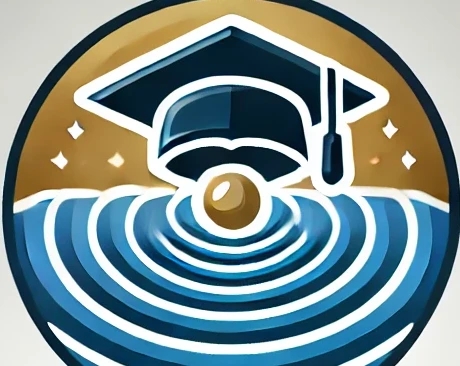weekly Scheme Of Work Primary 5
1. English Language
The 3rd Term English Language curriculum for Primary 5 focuses on enhancing pupils’ proficiency in various aspects of the language, including speech, grammar, reading, vocabulary, writing, and dictation.
Weekly Breakdown:
Week 1: Speech Work – Intonation practice: commands and requests
Week 2: Structure – Construction using verb phrase complements with adverbials
Week 3: Reading – Teaching of new words and their meanings
Week 4: Vocabulary Development – Words associated with transportation
Week 5: Writing – Descriptive essay on a familiar topic
Week 6: Dictation – Practice with selected passages
Week 7: Mid-Term Test
Week 8: Speech Work – Stress patterns in multi-syllabic words
Week 9: Structure – Use of active and passive voice
Week 10: Reading – Comprehension passages with questions
Week 11: Revision
Week 12: Third Term Examination
2. Mathematics
The 3rd Term Mathematics curriculum for Primary 5 introduces pupils to various mathematical concepts, including temperature, geometry, measurement, binary numbers, and statistics.
Weekly Breakdown:
Week 1: Temperature – Understanding and converting between Celsius and Fahrenheit
Week 2: Geometry – Meaning and types of lines, angles, and bearings
Week 3: Plane Shapes – Properties of triangles, quadrilaterals, and circles
Week 4: Three-Dimensional Shapes – Cubes, cuboids, and prisms
Week 5: Circle – Identification of parts of a circle
Week 6: Measurement – Measuring height and distance
Week 7: Mid-Term Test
Week 8: Binary Number System – Conversion between base 2 and base 10
Week 9: Binary Number System – Addition and subtraction of binary numbers
Week 10: Statistics – Range, mode, mean, median, bar charts, and pie charts
Week 11: Revision
Week 12: Third Term Examination
3. Basic Science and Technology
The 3rd Term Basic Science and Technology curriculum for Primary 5 covers topics related to materials, safety, temperature, and basic electricity.
Weekly Breakdown:
Week 1: Revision of Second Term’s work
Week 2: Materials – Identification, types, and uses of materials (wood, metals, plastics)
Week 3: Safety – Understanding safety measures in the use of materials
Week 4: Temperature – Units and symbols of temperature scales
Week 5: Temperature – Relationship between Celsius and Fahrenheit, uses of thermometers
Week 6: Measurement – Taking measurements with clinical thermometers
Week 7: Mid-Term Test
Week 8: Basic Electricity – Electricity as a form of energy, types of electricity
Week 9: Basic Electricity – Cells or batteries and the flow of electric current
Week 10: Basic Electricity – Continuation and practical applications
Week 11: Revision
Week 12: Third Term Examination
4. Computer Studies (Information Technology)
The 3rd Term Computer Studies curriculum introduces pupils to basic computer concepts and functionalities.
Weekly Breakdown:
Week 1: The Desktop – Meaning and identification of desktop and wallpaper
Week 2: Content of the Desktop – Icons, taskbar, start button, recycle bin, My Computer, My Documents
Week 3: The Keyboard – Types and functions of keys
Week 4: The Mouse – Types, functions, and handling of the mouse
Week 5: The Monitor – Types and functions
Week 6: The System Unit – Components and functions
Week 7: Mid-Term Test
Week 8: Introduction to Microsoft Word – Features and uses
Week 9: Typing with Microsoft Word – Practical sessions
Week 10: Saving and retrieving documents in Microsoft Word
Week 11: Revision
Week 12: Third Term Examination.
5. Physical and Health Education (PHE)
The 3rd Term PHE curriculum focuses on nutrition, martial arts, swimming, diseases, and drug abuse.
Weekly Breakdown:
Week 1: Revision of Second Term’s work
Week 2: Food and Nutrition – Concept, sources of nutrients, nutritional deficiency diseases
Week 3: Nutrition Deficient People – Characteristics and effects of family size on nutrition
Week 4: Martial Arts (History) – Meaning, types, history, and importance of judo
Week 5: Martial Arts (Rules and Skills) – Rules, basic skills, and techniques of judo
Week 6: Swimming Strokes – Freestyle, breaststroke, backstroke, and butterfly stroke
Week 7: Mid-Term Test
Week 8: Pathogen Diseases – Meaning, types, symptoms, and prevention
Week 9: Signs and Symptoms of Diseases – Concepts and differences between sickness and illness
Week 10: Communicable and Non-Communicable Diseases – Concepts and examples
Week 11: Issues and Challenges of Drug Abuse – Effects and consequences
Week 12: Revision
Week 13: Third Term Examination
6. Cultural and Creative Arts (CCA)
The 3rd Term CCA curriculum introduces pupils to collage making and local architecture.
Weekly Breakdown:
Week 1: Introduction to Collage – Meaning and materials for making collages
Week 2: Making and Functions of Collages
Week 3: Forms of Local Architecture – Meaning and forms
Week 4: Basic Considerations in Local Architecture
Week 5: Practical: Creating a simple collage
Week 6: Practical: Designing a model of local architecture
Week 7: Mid-Term Test
Week 8: Introduction to Mosaics – Meaning and materials
Week 9: Making Mosaics – Techniques and applications
Week 10: Practical: Creating a simple mosaic
Week 11: Revision
Week 12: Third Term Examination
7. Agricultural Science
The 3rd Term Agricultural Science curriculum covers pests and diseases of crops, livestock production, and animal husbandry.
Weekly Breakdown:
Week 1: Revision of First and Second Term’s work
Week 2: Pests and Diseases of Crop Plants – Common pests (insects, birds, rodents, etc.)
Week 3: Casual Agents of Crop Diseases – Identification and control measures
Week 4: Preparation for Planting – Materials and land preparation using farm tools
Week 5: General Requirements for Livestock Production – Introduction to animal husbandry
Week 6: Requirements for Livestock Management – Housing, feeding, and care
Week 7: Mid-Term Test
Week 8: Components of Animal Feed – Locally sourced and processed feeds
Week 9: Effects of Dirty Environment and Starvation on Young Animals
Week 10: Raising Livestock – Procedures for rearing animals like cattle, sheep, and pigs
Week 11: Practical: Rearing Livestock and Applying Necessary Skills
Week 12: Third Term Examination
8. Home Economics
The 3rd Term Home Economics curriculum focuses on clothing care, practical sewing skills, and maintenance of personal belongings.
Weekly Breakdown:
Week 1: Revision of Second Term’s work
Week 2: Simple Relevant Clothing Articles I
Week 3: Simple Relevant Clothing Articles II
Week 4: Materials for Care of Clothing
Week 5: Care and Maintenance of Clothing
Week 6: Mending of Clothing (Practical)
Week 7: Mid-Term Test
Week 8: Sewing and Mending of Torn Clothes (Practical)
Week 9: Patching of Torn Clothes
Week 10: Revision
Week 11: Third Term Examination
9. Christian Religious Studies (CRS)
The 3rd Term CRS curriculum emphasizes the role of the Holy Spirit and the rewards of working in the Holy Spirit.
Weekly Breakdown:
Week 1: Revision of Second Term’s work
Week 2: The Holy Spirit Makes Us Faithful
Week 3: The Holy Spirit Helps Us to Obey God’s Commandments
Week 4: The Holy Spirit Gives Us Courage to Preach the Gospel
Week 5: The Holy Spirit Helps Us to Love One Another
Week 6: The Holy Spirit Helps Us to Be Humble
Week 7: Mid-Term Test
Week 8: The Reward of Working in the Holy Spirit I – Concept of Reward and Punishment
Week 9: The Reward of Working in the Holy Spirit II
Week 10: The Holy Spirit Working in Us III – The Reward of Working for God
Week 11: Revision
Week 12: Third Term Examination
10. Civic Education
The 3rd Term Civic Education curriculum covers duties and obligations to government, hard work, civil society, and moral education.
Weekly Breakdown:
Week 1: Revision of Second Term’s work
Week 2: Our Duties and Obligations to Government – Duties of Pupils in a School and Duties of Children in a Family
Week 3: Our Duties and Obligations to Government Continued – Meaning of Hard Work and Laziness; Reward for Hard Work and Laziness; How to Encourage Hard Work
Week 4: Workers’ Protest Against Inadequate Payment – Demonstrations, Strikes, etc.
Week 5: Civil Society and Moral Education – Meaning and Characteristics of Civil Society
Week 6: Some Civil Society Organizations in Nigeria
Week 7: Moral Education – Meaning and Importance to Civil Society
Week 8: Revision
Week 9: Third Term Examination
11. Security Education
The 3rd Term Security Education curriculum focuses on the Child’s Rights Law and its implications.
Weekly Breakdown:
Week 1: Revision of Second Term’s work
Week 2: The Child’s Law I – Introduction to the Child’s Rights Act
Week 3: The Child’s Law II – A Child Under the Child’s Right Act; Child’s Right Law in Lagos State
Week 4: The Child’s Law III – Rights and Responsibilities of a Child
Week 5: The Child’s Law IV – Protection of Children’s Rights
Week 6: The Child’s Law V – Agencies Responsible for Child Protection
Week 7: Mid-Term Test
Week 8: Revision
Week 9: Third Term Examination


